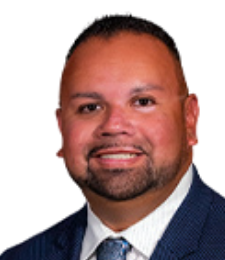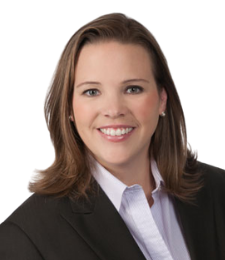I’m thrilled to announce that Bedard Law Group is the new sponsor for the Compliance Digest. Bedard Law Group, P.C. – Compliance Support – Defense Litigation – Nationwide Complaint Management – Turnkey Speech Analytics. And Our New BLG360 Program – Your Low Monthly Retainer Compliance Solution. Visit www.bedardlawgroup.com, email John H. Bedard, Jr., or call (678) 253-1871.

Every week, AccountsRecovery.net brings you the most important news in the industry. But, with compliance-related articles, context is king. That’s why the brightest and most knowledgable compliance experts are sought to offer their perspectives and insights into the most important news of the day. Read on to hear what the experts have to say this week.
Judge Denies Motion to Remand FDCPA Case Back to State Court
A District Court judge in California has denied a plaintiff’s request to remand a Fair Debt Collection Practices Act case to state court, ruling the plaintiffs have standing to sue because an FDCPA cause of action was “undeniably” alleged in the complaint. More details here.
WHAT THIS MEANS, FROM CHUCK DODGE OF HUDSON COOK: This is another Article III standing case, but not a Hunstein case. Rather, the pro se plaintiff sued the defendants in state court in connection with a real property foreclosure, alleging violations of California law and the FDCPA. When the defendants removed the case to federal court, the plaintiffs asked the court to remand the case to California state court for lack of subject matter jurisdiction. The judge had a fairly easy time denying the remand, pointing to the plaintiffs’ first cause of action in the complaint, which was a clearly-stated FDCPA claim (appropriate for adjudication in the federal courts). The judge found it likely that if the plaintiffs could demonstrate that the defendants had used false or deceptive means to collect a debt as alleged, the plaintiffs could demonstrate an injury-in-fact that would establish Article III standing. Removal of this case was the right procedural move for the defendants, and it appears that this case will play out in federal court unless the plaintiffs drop their FDCPA claims.
THE COMPLIANCE DIGEST IS SPONSORED BY:

Appeals Court Temporarily Blocks Student Loan Debt Relief Plan as Biden Announces 22 Million Have Applied in First Week
Nearly 22 million individuals applied for the federal government’s student loan forgiveness program in its first week of operation, President Biden said on Friday, the same day that the Court of Appeals for the Eighth Circuit temporarily stopped the program from going into effect, following a lawsuit that was filed by six states. More details here.
WHAT THIS MEANS, FROM JOANN NEEDLEMAN OF CLARK HILL: The push and pull of student loan debt will be front and center for the remainder of the year and into 2023. As the industry is well aware, in late August 2022, the White House and the Department of Education (DOE) proposed a targeted student loan forgiveness program that would provide up to $10,000.00 in debt forgiveness for student loan borrowers who were non-Pell Grant recipients and up to $20,000.00 for Pell Grant recipients. Other proposals included new income-driven repayment plans and repairs to the Public Service Loan Forgiveness (PSLF) program. While many student loan borrowers welcomed the relieve, the proposals have been met with extensive criticism from both sides of the aisle.
The legal challenges are tricky as these proposals were not the result of legislative but rather executive order and regulations from the DOE. This particular lawsuit was brought by a group of attorneys general (AGs) from six (6) Republican states who alleged that the White House’s proposals bypassed congressional authority and threatened their states’ future tax revenues and the money earned by state entities that invest in or service loans. The Federal District Court in St. Louis rejected the AGs claims, although the court held that the claims raised “important and significant challenges to the debt relief plan,”. Ultimately the District Court found that the AGs lacked standing. A day later the 8th Circuit issued an administrative stay ordering that the Biden administration take no further action on the debt relief plan until full consideration of the case could occur.
However, since the 8th Circuit’s decision the United States Supreme Court on two occasions has refused to grant a request to block the debt relief program. On November 4th, Justice Amy Coney Barrett denied an emergency application to block the program by the Pacific Legal Foundation, a conservative legal group, on behalf of two borrowers in Indiana. On October 20th, Justice Barrett denied a similar request from the Brown County Taxpayers Association in Wisconsin. It is unclear when the 8th Circuit will here the AGs suit or whether any emergency application will be made to the Supreme Court.
This disruption and uncertainty does little for the ARM industry especially for those that have contracts with government approved servicers and those agencies that service and collect private student loans. We can all agree that the way college is financed is broken and the cost of a higher education is outrageous. Debt forgiveness does not cure either problem. According to educationdata.org, the average cost of a college education in 2022 was $35,000 which includes, books, supplies and daily living expenses. So even with these proposed forgiveness programs, borrowers are still going to face a balance owed at the end of the day. The ARM industry will continue to play an important role in this process. For the moment, servicers and agencies should continue to provide the valued information borrowers are looking for and work with those who have obligations that must be met. The legal challenges are political noise and they will have little to no impact on the debt that needs to be repaid at the end of the day.
Judge Certifies Class Against Defaulted Defendant in FDCPA Case
A District Court judge in Mississippi has certified a class action in a Fair Debt Collection Practices Act case in which the plaintiff has already obtained a default judgment against the defendant, after the defendant allegedly sent letters to the plaintiff that did not have the proper disclosures on them. More details here.
WHAT THIS MEANS, FROM DAVID SCHULTZ OF HINSHAW CULBERTSON: McAllister v Lake City Credit is a messy case in multiple ways. First, the complaint alleged that two letters regarding a payment plan failed to comply with 1692g. It seems unlikely that they were initial communications or that 1692g applied.
Second, the defendant was served but failed to appear. A default was entered against it. Perhaps the defendant thought that would be a quick way to end the case. Unfortunately, it was not.
Third, the case was pled as a class action. After the default, the court considered the motion to certify. It started about by saying that it still has to do a rigorous analysis of Rule 23’s elements even if there is a default. It then went through the Rule’s elements. However, instead of doing a rigorous analysis, it accepted the conclusory allegations in the motion. There does not appear to be any evidence on numerosity or superiority, for instance.
Fourth, the opinion ends with the court asking plaintiff to submit a memo on how class notice will be given. That’s a pretty good question, especially since it is not clear anyone else is in the class.
This case pretty well demonstrates the risks associated with default judgments.
Judge Grants MTD in FDCPA, FCRA Case Over Emails, Portal Access
A District Court judge in Maryland has granted a defendant’s motion to dismiss after it was sued by a pro se plaintiff for violating a number of statutes, including the Fair Debt Collection Practices Act because, among other claims, the defendant was not allowed to use the last four digits of the plaintiff’s Social Security number as the access code on the defendant’s payment portal. More details here.
WHAT THIS MEANS, FROM RON CANTER FROM THE LAW OFFICES OF RONALD S CANTER: The court properly applied prevailing case law holding that the entry of a default against an individual defendant is not an impediment to the entry of an order certifying a class of similarly situated defendants.
The court found that the plaintiff’s allegations were sufficient to satisfy the numerosity requirement for maintaining a class action, a requirement usually met where at least 20 members are similarly situated to the name plaintiff.
Upon entry of the order of class certification, the plaintiff will be permitted to conduct discovery to identify the names of the class members in order to send notice of the class action to those individuals. If the debt collector Defendant refuses to comply with the request for a list of class members, the court has the power of contempt as to refusal to obey a discovery request or a subpoena for records. Assuming that there are a sufficient number of individuals that come within the class, notice can then be provided under Federal requirements.
What is missing from the court’s analysis is whether the plaintiff can satisfy the Article III requirement that each class member have standing by establishing that each member actually received the alleged offending communication. This requirement is imposed under the Supreme Court’s 2021 ruling in TransUnion v. Ramirez that holds a plaintiff seeking class certification must establish standing for each individual class member.
Appeals Court Reverses Ruling Whether Call Center Agents Should be Paid While Computers Boot Up, Shut Down
The Court of Appeals for the Ninth Circuit has overturned a lower court’s ruling in favor of the defendant and ruled that the time spent by agents in a call center booting up and turning off their computers is an “integral and indispensable” part of their duties and they should be paid for that time, regardless of how long it takes. More details here.
WHAT THIS MEANS, FROM CARLOS ORTIZ OF POLSINELLI: In Cadena, et al. v. Customer Connexx LLC, et al., the U.S. Court of Appeals for the Ninth Circuit held that the time employees spend booting up their computers is compensable under the Fair Labor Standards Act (“FLSA”), 29 U.S.C. 201, et seq. The employer operated a physical call center with numerous computer workstations on a single floor. To perform their job, employees must launch a computer program through which calls are made. Depending on the age of the computers, employees had testified that the time it took them to boot up a computer was between 6.8 to 12.1 minutes and that the logging off and shutting down process was 4.75 to 7.75 minutes. The employer argued that under the under the federal Portal-to-Portal Act, pre-shift and post-shift activities are compensable only if those activities are “an integral and indispensable part of the principal activities,” and, according to the employer, the time employees spent booting up and shutting down their computers were not principal activities. The Ninth Circuit disagreed with the employer and reasoned that the employees’ duties cannot be performed without turning on and booting up their work computers, and having a functioning computer is necessary before employees can receive calls and schedule appointments. Because the time spent booting up their computers was integral to the employees’ job responsibilities, the Ninth Circuit held that the time was compensable under the FLSA.
While the Ninth Circuit did qualify its decision as being limited to the particular facts of the case, its holding will likely still impact employers in that circuit who are defending against FLSA claims where employees are seeking compensation for pre-shift time spent on activities that are intertwined with the performance of their job responsibilities. To limit their risk, employers should aim to limit the steps and time it takes employees to be in a position to begin their work duties. Interestingly, the Ninth Circuit expressly stated that it offered no opinion on whether the same time would be compensable under the FLSA if the employees worked remotely or used their personal computers to perform job duties.
CFPB Responds to TransUnion Motion by Blasting Fifth Circuit Ruling
The ruling from the Fifth Circuit Court of Appeals doesn’t “make sense” and is “without support in law,” the Consumer Financial Protection Bureau argues in a response to a motion for supplemental authority that was filed by TransUnion as it seeks to use the ruling to get a lawsuit filed by the CFPB against the credit reporting giant dismissed. The filing marks the first official response from the CFPB to the ruling from the Fifth Circuit, which determined that the funding structure used to run the Bureau is unconstitutional. More details here.
WHAT THIS MEANS, FROM STEFANIE JACKMAN OF TROUTMAN PEPPER: The Fifth Circuit’s recent decision in the CFSA appeal renders all CFPB actions from inception of the Bureau, as well as its current activities, potentially vulnerable to challenge, both within the Fifth Circuit and beyond. That includes Reg. F and Reg. X, as well as all other rules promulgated by the Bureau over the last decade. It also stands to call into question the constitutionality of a host of other agencies that are similarly funded outside the congressional appropriations process – including the Federal Reserve itself. This appears to be one of the significant unpinnings of the CFPB’s response in the TransUnion matter – essentially, that if this is not addressed, it will cause broad chaos reaching far beyond just the CFPB. And the Supreme Court historically is sensitive to such considerations. As a general rule, the Court strives to find the narrowest resolution in a case that it consistent with the Court’s holding. Therefore, even in the event the Supreme Court were to uphold the Fifth Circuit that the Bureau’s funding structure is unconstitutional, that does not mean the Court will agree with the broad remedy imposed by the lower court. Instead, it could fashion a remedy that is prospective only or which is more narrow in scope than that imposed by the Fifth Circuit’s decision in order to limit any broader impact on other agencies.
In the interim, companies subject to the CFPB’s authority have to consider how to deal with the CFPB moving forward. Already, some entities involved in ongoing litigation with the Bureau have or are preparing to file motions to stay pending the resolution of CFSA. And such efforts are unlikely to be limited to only pending actions within the Fifth Circuit. Instead, the CFPB likely will face such arguments in various jurisdictions around the country in the event it proceeds with litigation in any venue. There likely also will be challenges to ongoing CFPB investigations and examinations when such matters press forward in ways that are not workable for the entities involved and who may wish to push back. Current rulemaking activities also could be challenged. In sum, the CFSA decision stands to inject a great deal of potential uncertainty in CFPB interactions across the country, depending on how various stakeholders determine to proceed. It also is important to consider how various approaches to future CFPB activities could impact the long-term relationship between the objectors and the CFPB, which seems likely to survive in some form when this is all said and done.
For the ARM industry, beyond the general uncertainty described above, another potential, immediate impact may be plaintiffs attempting to sidestep Reg. F safe harbors. If the CFPB was unconstitutionally funded, then we should expect that plaintiffs may argue that the protections offered by Reg. F are also subject to challenge. Companies have invested a great deal of resources and time in building Reg. F-compliant practices which could now be subject to unanticipated challenges. We also anticipate continuing coordination between the FTC and state AGs. Specifically, if limitations are imposed on the CFPB based on the CFSA decision, it is likely that any federal agenda by the CFPB would shift to the FTC (and state AGs) to continue related enforcement activities. The FTC and the states could work together even more closely in such instances, given the limitations for the FTC to recovery monetary relief under the FTC Act since the Supreme Court ruling in the AMG Capital Management case.
I’m thrilled to announce that Bedard Law Group is the new sponsor for the Compliance Digest. Bedard Law Group, P.C. – Compliance Support – Defense Litigation – Nationwide Complaint Management – Turnkey Speech Analytics. And Our New BLG360 Program – Your Low Monthly Retainer Compliance Solution. Visit www.bedardlawgroup.com, email John H. Bedard, Jr., or call (678) 253-1871.















